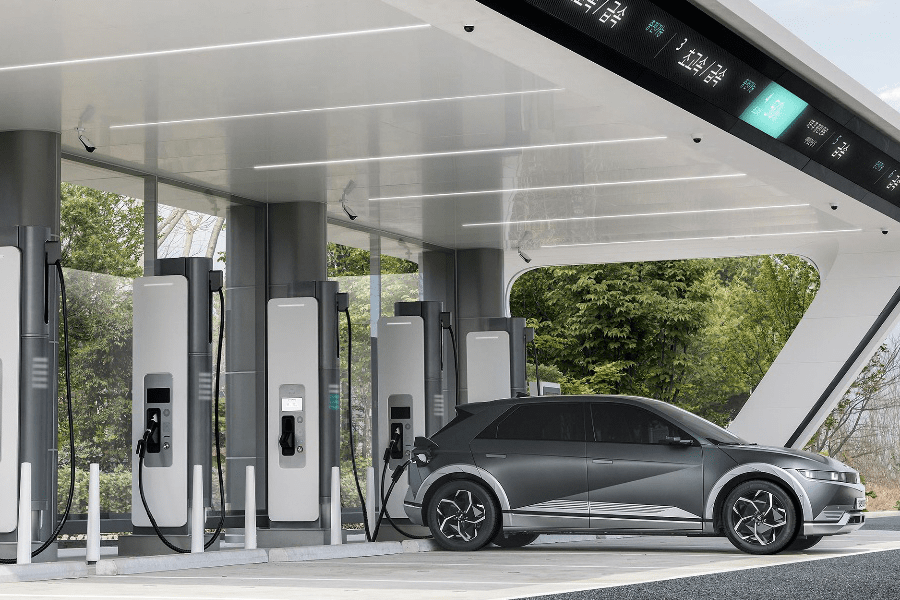Hyundai Motor Company has announced plans to nearly double the number of fast-charging stations in its own High Performance Charging (HPC) network, “E-Pit,” in South Korea. The carmaker currently operates 286 fast-chargers at 54 locations across the country and aims to increase this number to 500 by next year.
The E-Pit stations offer charging speeds of up to 350 kW, allowing electric vehicles (EVs) equipped with an 800-volt system to charge from 10 to 80 percent in just 18 minutes. According to local media reports, Hyundai will install an additional 3,000 ultra-fast chargers through its affiliate, Korea Electric Vehicle Charging Service (KEVCS), along with 20,000 AC chargers.
Hyundai introduced its own HPC columns, called Blue Plug, last summer, although it is unclear if these will be used for the expansion. Currently, the hardware for the E-Pit hubs is sourced from SK Signet and EVSIS.
The carmaker initiated the construction of the E-Pit network in 2021, just before the launch of its first 800-volt electric vehicles, the Hyundai Ioniq 5 and Kia EV6. Initially aiming for 120 HPC columns by the end of 2021, Hyundai reportedly had only 36 operational columns by last summer. Recent reports, however, indicate 54 locations and 286 stations.
In April 2022, Hyundai announced a collaboration with retail giant Lotte Group and KB Asset Management to expand ultra-rapid charging infrastructure in Korea. Their business model includes leasing high-power charging stations to private operators, aiming to add 5,000 ultra-fast chargers by 2025.
Additionally, Hyundai has launched the “E-pit Pass,” a membership offering a 20 percent discount on charging fees and access to 72,000 charging stations from Hyundai’s partners. The manufacturer aims to grant access to 260,000 chargers by the second half of 2024.
Approximately 50 percent of South Korea’s EV chargers are located in the Seoul metropolitan area, which includes the capital Seoul, Gyeonggi Province, and Incheon. This concentration is due to the high number of EVs in the region and its dense population.

